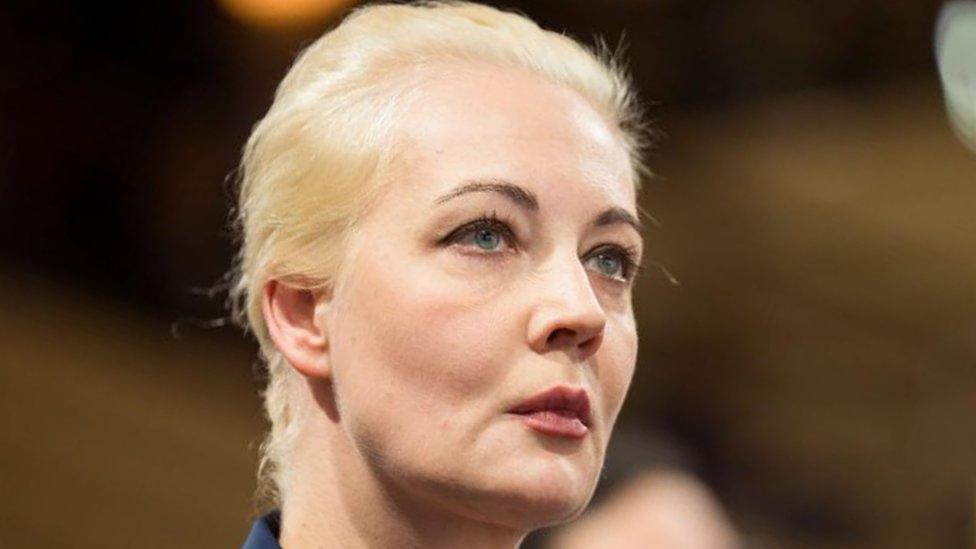Yulia Navalnaya: Russian opposition leader's 'principled and fearless' widow
- Published
Watch: 'I will continue Alexei's work', says Navalny's widow
Alexei Navalny's wife Yulia has always kept a low profile, insisting that her main role was as a wife and mother not a politician.
But with her husband's death on Friday and her impassioned appeal for justice at the Munich Security Conference, she has emerged as a major figure in Russia's beleaguered opposition perhaps by default.
Despite her background role in the past, Ms Navalnaya has always been a crucial supporter of her husband, and was instrumental in getting him out of Russia for urgent treatment when he was poisoned with Novichok nerve agent in 2020.
She has been described as the "First Lady" of the Russian opposition.
And Alexei said himself that he could not continue his increasingly desperate and one-sided fight against the Kremlin without her.
Their very public love story and family life - they have two children - has been seen as an inspiration for their supporters.
Yulia Ambrosimova was born in Moscow in 1976, daughter of the respected scientist Boris Ambrosimov.
An economics graduate, she had a career in banking but gave up her job to bring up their two children when Alexei rose to prominence as an opposition politician.
They had met on holiday in Turkey in 1998 and married two years later. There seemed to be no suggestion then of Alexei's future fame.
"I did not get married to a promising lawyer or an opposition leader. I got married to a young man named Alexei," she told the Russian weekly Sobesednik in 2020.
It seems Ms Navalnaya shared Alexei's politics from early on - in the 2000s they were both members of the liberal Yabloko party.
But she led a relatively private life until her husband's poisoning in 2020, making few public appearances or speeches.
When he was taken ill in the Siberian city of Omsk in August of that year, she wrote directly to President Putin, asking for him to be released for treatment in Germany.
"Every moment when we were there, I thought 'I had to get him out'," she told Russian documentary maker Yuri Dud.
Navalny was able to get out of Russia, with the help of a German-based charity.
Yulia returned with him to Moscow several months later after his treatment, and saw him arrested immediately. The remainder of his life was spent behind bars.
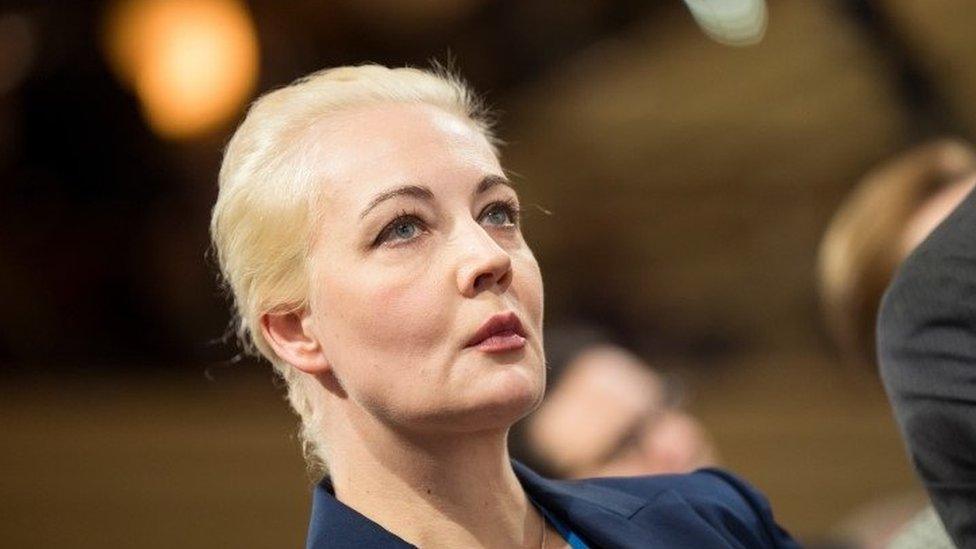
Navalnaya may be emerging as an opposition figure in her own right
Former US ambassador to Russia Michael McFaul, who has called Yulia "principled and fearless", said at the time that there would be enormous pressure on her to play a more public role, and that she had "all the credentials".
"Navalny could not have a better partner in life than Yulia Navalnaya. She shares his convictions, his bravery, his fearlessness," he told the US network NBC.
"She also has raised and protected their two children in a way that has generated deep admiration among supporters of democracy in Russia. Without question, Yulia saved her husband's life."
Watch Yulia Navalnaya speak following report of husband's death
Ms Navalnaya said recently she would not follow the path of Svetlana Tikhanovskaya, the exiled Belarus opposition leader who became a presidential candidate after her husband was jailed ahead of the elections in 2020. Ms Tikhanovskaya is widely considered to have won the vote, which were rigged in favour of the incumbent, Alexander Lukashenko.
But her speech at Munich and a subsequent address to supporters on social media, external (in Russian), both filled with emotion, suggest she may be changing her mind.
"What we need is a free, peaceful and happy Russia. The wonderful Russia of the future my husband so dreamed of," she says in the video address.
"That's the country I want to build together with you. The country Alexei Navalny imagined," she continues.
"That's the only way - no other - in which the unthinkable sacrifice he made, will not have been in vain."

Alexei Navalny: More coverage
OBITUARY: Russia's most vociferous Putin critic
BEHIND BARS: Life in notorious 'Polar Wolf' penal colony
IN HIS OWN WORDS: Navalny's dark humour during dark times
SARAH RAINSFORD: Navalny was often asked: 'Do you fear for your life?'

Related topics
- Published19 February 2024
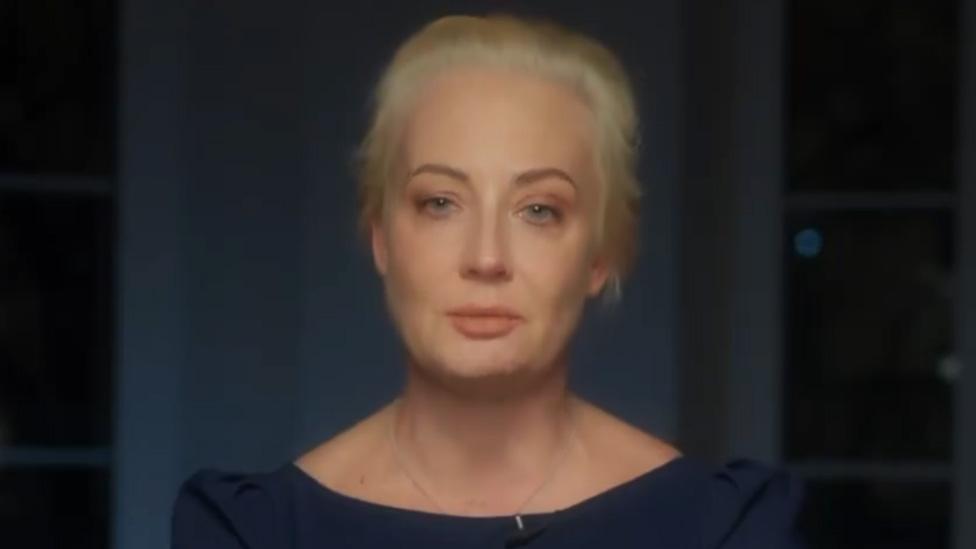
- Published17 February 2024
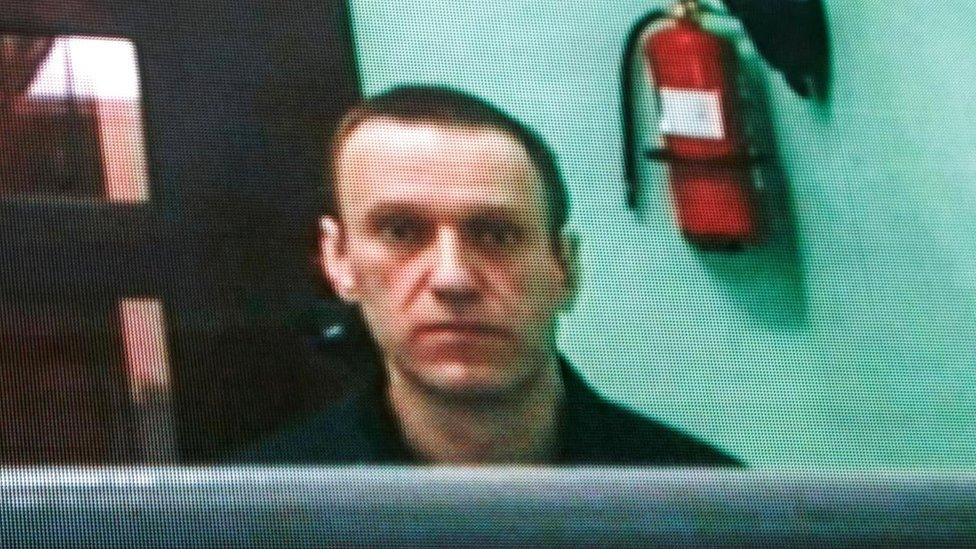
- Published17 February 2024
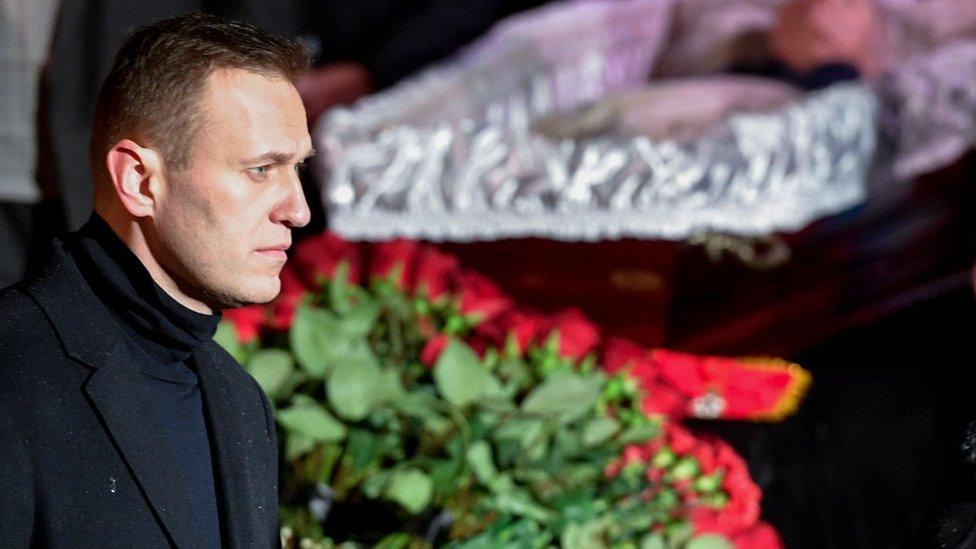
- Published16 February 2024
